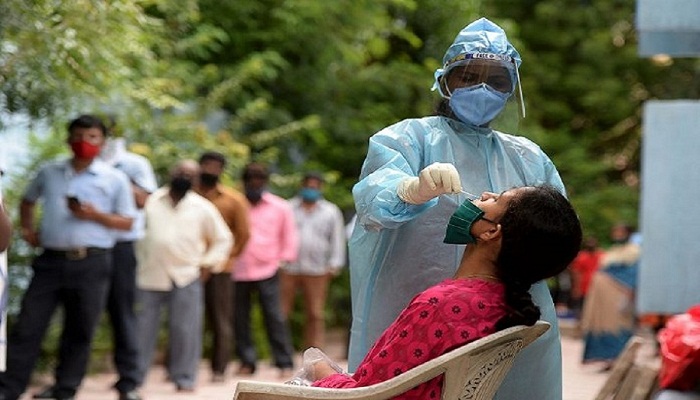After the devastating second wave of Covid-19, India is likely to witness a rise in Covid-19 infections in August that may peak in October, suggested the mathematical model of researchers, who accurately forecasted the slowing down of surge in cases earlier this year.
It is expected that the country will witness the virus wave this month and the infections peaking in the best-case scenario with less than 100,000 infections a day, or nearly 1,50,000 in the worst scenario, according to estimates by researchers led by Mathukumalli Vidyasagar and Manindra Agrawal at Indian Institute of Technology (IIT) in Hyderabad and Kanpur respectively.
The news agency Bloomberg cited the research of the IIT researcher Vidyasagar saying stated with high Covid rates, such as Kerala and Maharashtra, could “skew the picture.
The good news is that the daily cases are expected to be much lesser in number than the previous wave that peaked at a record 400,000-plus daily cases on May 7 and declined sharply thereafter. However, the predictions harps on the need for India to accelerate its vaccination campaign, deploying surveillance methods to trace emerging hotspots and remain cautious through genome sequencing amid the threat of new variants evolving.
The delta strain that has once again reported fresh outbreaks across the world has been first identified in India last October.
The reasons for spurt in infections are mostly as a result of complacency in people jumping back to social and business activity in the face of waning infections.
It is being said that the high levels of natural immunity developed in the second wave can reduce the impact of the next surge to some extent. A national antibody survey by the Indian Council of Medical Research study revelaed that two-thirds of Indians above the age of six had been exposed to the coronavirus.
Since the last wave started to peak, daily infections were reported at 40,000 daily mark. At present, approximately half of new cases are coming from Kerala making it potentially the next hotspot.
Daily cases have grown in numbers through July in Kerala and a few smaller North-Eastern States. However, a few States also saw “short-lived flare-ups in July which abated relatively quickly,” putting the country overall in “a steady state” for now, said Paul Kattuman, professor in the Judge Business School at the University of Cambridge.
“If infection begins to increase in a few large states, the present balance will tip, and cases are likely to begin growing again in the country as a whole,” Kattuman said. “We might expect to see a slow-burn in the country for a duration — this can be expected to last till vaccination coverage is sufficiently high to induce herd immunity.”
India has so far administered 470.3 million vaccine doses, but only 7.6 per cent of the population is fully vaccinated, according to Bloomberg’s vaccine tracker. The relatively slow uptake has added to concerns that the country may not be fully geared for the next wave.



